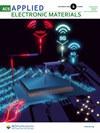Effectiveness of the online-based comprehensive cognitive training application, Smart Brain, for community-dwelling older adults with dementia: a randomized controlled trial.
IF 4.3
3区 材料科学
Q1 ENGINEERING, ELECTRICAL & ELECTRONIC
引用次数: 0
Abstract
BACKGROUND The fourth industrial revolution has brought about developments in information and communication technologies for interventions in older adults with dementia. Currently, most interventions focus on single interventions. However, community-dwelling older adults with dementia require comprehensive cognitive interventions, and clinical studies analyzing the effects of comprehensive interventions based on randomized controlled trials are lacking. AIM The aim of the study was to examine the effects of an information and communication technology-based comprehensive cognitive training program, Smart Brain, on multi-domain function among community-dwelling older adults with dementia. DESIGN This was a two-group, randomized, controlled trial. SETTING This study was conducted at participant's home. POPULATION We analyzed older adults with dementia. METHODS Participants were randomly allocated to either the intervention group (N.=30) or the control group (N.=30). Older adults with dementia in the intervention group received 8 weeks of Smart Brain comprehensive cognitive training using a tablet, whereas the control group received a similar tablet but without the training. We measured the outcomes at baseline, and at 4 and 8 weeks. Cognitive function, depression, quality of life, balance confidence, physical ability, nutrition, and caregiver burden were compared between groups. RESULTS In the intervention group, cognitive function statistically increased from baseline to both week 4 (2.03; 95% CI 1.26 to 2.81) and week 8 (2.70; 95% CI 1.76 to 3.64). Depression was statistically different from week 0 to week 8 (-1.67, 95% CI -2.85 to -0.48). Physical ability statistically increased from baseline to both week 4 (-0.85; 95% CI 1.49 to -0.20) and week 8 (-1.44; 95% CI -2.29 to -0.59). Nutrition statistically increased from baseline to both week 4 (0.67; 95% CI 0.05 to 1.28) and week 8 (1.10; 95% CI 0.36 to 1.84). CONCLUSIONS Smart Brain significantly improved cognitive function, reduced depression, and enhanced physical and nutritional status in older adults with dementia. This demonstrates its potential as an effective non-pharmacological intervention in community-based dementia care. CLINICAL REHABILITATION IMPACT Smart Brain's personalized approach, which integrates user-specific preferences and expert guidance, enhances engagement and goal achievement in dementia care. This enhances self-esteem and clinical outcomes, demonstrates the application's potential to innovate rehabilitation practices.基于网络的综合认知训练应用程序 "智能大脑 "对社区老年痴呆症患者的疗效:随机对照试验。
背景第四次工业革命带来了信息和通信技术的发展,用于干预老年痴呆症患者。目前,大多数干预措施侧重于单一干预。目的本研究旨在探讨基于信息和通信技术的综合认知训练计划 "智能大脑 "对社区老年痴呆症患者多领域功能的影响。方法将参与者随机分配到干预组(30 人)或对照组(30 人)。干预组患有痴呆症的老年人使用平板电脑接受为期 8 周的智脑综合认知训练,而对照组则使用类似的平板电脑,但不接受训练。我们对基线、4 周和 8 周时的结果进行了测量。结果 在干预组中,认知功能从基线到第 4 周(2.03;95% CI 1.26 到 2.81)和第 8 周(2.70;95% CI 1.76 到 3.64)均有统计学增长。从第 0 周到第 8 周,抑郁在统计学上存在差异(-1.67,95% CI -2.85 到 -0.48)。体能从基线到第 4 周(-0.85;95% CI 1.49 到 -0.20)和第 8 周(-1.44;95% CI -2.29 到 -0.59)均有统计学增长。从基线到第 4 周(0.67;95% CI 0.05 到 1.28)和第 8 周(1.10;95% CI 0.36 到 1.84),营养状况均有显著改善。临床康复影响智脑的个性化方法结合了用户的具体偏好和专家的指导,提高了痴呆症护理的参与度和目标达成度。这增强了用户的自尊心,提高了临床疗效,展示了该应用在创新康复实践方面的潜力。
本文章由计算机程序翻译,如有差异,请以英文原文为准。
求助全文
约1分钟内获得全文
求助全文

 求助内容:
求助内容: 应助结果提醒方式:
应助结果提醒方式:


